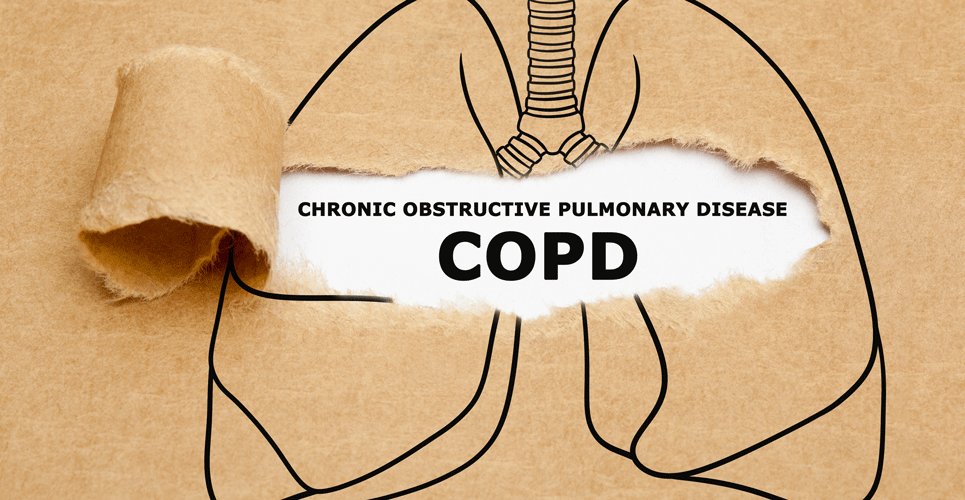Two classes of oral anti-diabetic agents were able to significantly reduce the risk of chronic obstructive pulmonary disease exacerbations
The oral anti-diabetic agents, glucagon-like peptide 1 (GLP-1) receptor agonists and sodium-glucose co-transport-2 (SGLT-2) inhibitors, are associated with a significant reduction in the risk of exacerbations in patients with both chronic obstructive pulmonary disease (COPD) and type 2 diabetes compared to sulfonylureas, according to an analysis by Canadian researchers. In contrast, a third group, the dipeptidyl peptidase 4 (DPP-4) inhibitors, produced only a modest and non-significant reduction in the risk of exacerbations.
The oral anti-diabetic agents, GLP-1 receptor agonists and DPP-4 inhibitors have become well established treatments in the management of type 2 diabetes. In addition, the newest class of drugs, the SGLT-2 inhibitors, in addition to providing diabetic control, also appear to have some positive benefits on cardiovascular endpoints. In addition, to the anti-diabetic agents, there is emerging evidence to suggest that drugs within these classes also have the potential for a positive impact on lung function. For example, animal studies have revealed how the GLP-1 receptor agonists have potential therapeutic value in the treatment of obstructive pulmonary diseases. Similarly, given that dipeptidyl peptidase 4 expression is increased in the lungs of those with COPD, leading to inflammation, the DPP-4 inhibitors have a possible role in the disease through a reduction in lung inflammation. Finally, as COPD is characterised by increased retention of alveolar CO2 and given how SGLT-2 inhibitors lower serum glucose levels, reducing its availability for, there is also a commensurate reduction in the endogenous production of CO2. It is conceivable therefore that SGLT-2 inhibitors may be beneficial for patients with diabetes and concomitant pulmonary disease who retain CO2.
In practice however, the extent to which these purported benefits actually reduce COPD exacerbations is unknown and was the subject in the present study. The Canadian team undertook a population cohort study in which they linked a clinical and hospital episode database to explore whether prescription of each of the three oral anti-diabetic drug classes was associated with a reduced risk of COPD exacerbations in patients with both type 2 diabetes and COPD. The primary outcome was the time to the first episode of a severe COPD exacerbation during follow-up and patients prescribed drugs from each of the different classes were matched with patients prescribed sulfonylureas.
Oral anti-diabetic drugs and COPD exacerbations
A total of 1252 participants prescribed GLP-1 receptor agonists were followed for a median of 1 year. The use of GLP-1 agonists was associated with a 30% lower risk of a severe COPD exacerbation compared to sulfonylureas (Hazard ratio, HR = 0.70, 95% CI 0.49 – 0.99) and a 37% reduced risk of a moderate exacerbation (HR = 0.63, 95% CI 0.43 – 0.94).
After propensity matching, participants prescribed DPP-4 inhibitors had a reduced, but non-significant reduction in severe (HR = 0.91, 95% CI 0.82 – 1.02) and moderate COPD exacerbations (HR = 0.93, 95% CI 0.82 – 1.07).
For SGLT-2 inhibitors, the mean reduction in severe exacerbations was 38% lower (HR = 0.62, 955 CI 0.48 – 0.81) but the reduction for moderate severity exacerbations was non-significant (HR = 1.02, 95% CI 0.83 – 1.27).
The authors concluded that the use of both GLP-1 receptor agonists and SGLT-2 inhibitors were associated with a significantly reduced risk of severe exacerbations compared with sulfonylureas in patients with chronic obstructive pulmonary disease and type 2 diabetes. In contrast, while exacerbations rates were reduced with DPP-4 inhibitors, these reductions were not statistically significant.
Citation
Pradham R et al. Novel antihyperglycaemic drugs and prevention of chronic obstructive pulmonary disease exacerbations among patients with type 2 diabetes: population-based cohort study. BMJ 2022

